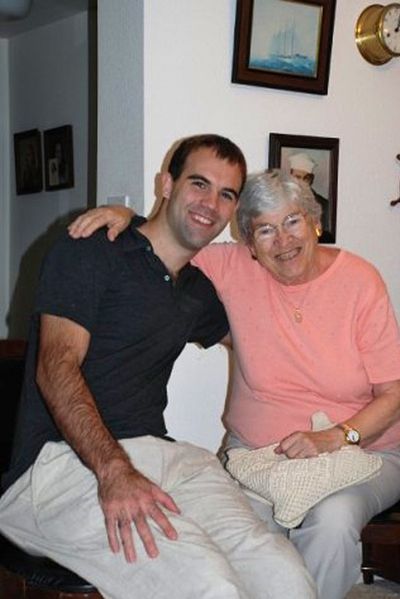American admits spying for China
Dozens have been charged since 2008

ALEXANDRIA, Va. – The young man stood before the judge, his usually neatly trimmed hair now long enough to brush the collar of his prison jumpsuit. Glenn Duffie Shriver had confessed his transgressions and was here, in a federal courtroom with his mother watching, to receive his sentence and to try, somehow, to explain it all.
He had been a seemingly all-American, clean-cut guy: No criminal record. A job teaching English overseas. In letters to the judge, loved ones described the 29-year-old Midwesterner as honest and caring – a good citizen. His fiancée called him “Mr. Patriot.”
Such descriptions make the one that culminated in the courtroom all the more baffling: Glenn Shriver was also a spy recruit for China. He took $70,000 from individuals he knew to be Chinese intelligence officers to try to land a job with a U.S. government agency – first the State Department and later the CIA.
And Shriver is just one of at least 57 defendants in federal prosecutions since 2008 charging espionage conspiracies with China or efforts to pass classified information, sensitive technology or trade secrets to intelligence operatives, state-sponsored entities, private individuals or businesses in China, according to an Associated Press review of U.S. Justice Department cases.
Despite denials from Beijing, counterintelligence experts say the cases reveal the Chinese as among the most active espionage offenders in America today, paying more money and going to greater lengths to glean whatever information they can from the United States.
Joel Brenner, who served as the U.S. National Counterintelligence Executive from 2006 to 2009, said: “The Chinese espionage threat has been relentless recently … we’ve never seen anything like it. Some of it’s public. Some of it’s private. And some of it lies in that ambiguous area in between.”
Today’s “agents” are professors and engineers, businessmen exporting legitimate products while also shipping restricted technology and munitions, criminal capitalists who see only dollar signs. While some may be acting at the direction of a government handler, others supply information to firms for private enterprise or state-sponsored research.
Indeed most of the Justice Department cases reviewed by the AP involve the illegal export of restricted defense-related parts or so-called “dual-use” technology, which can have commercial or military applications. These are items such as integrated circuits for radar systems, high-power amplifiers designed for use in early-warning radar and missile target acquisition systems, and military grade night-vision technology.
But that only scratches the surface. Other cases involve the theft of trade secrets by individuals once employed at major U.S. corporations, including Boeing, Motorola and Dow. In some instances, the secrets were computer source codes or, in cases still awaiting trial, related to the development of organic pesticides and telephone communications technology.
Standing before a federal judge in January, Shriver tried to explain how he went down the path to betrayal.
“It started out fairly innocuous,” he recalled. During a college study-abroad program in Shanghai, he was taken with Chinese culture and became proficient in Mandarin.
Shriver was just 22 years old when, in October 2004, he first met a woman in Shanghai called “Amanda.”
Six months after first meeting “Amanda,” Shriver applied for a job with the U.S. State Department. Though he failed the foreign service exam, Chinese intelligence officers paid him $10,000.
Then, in June 2007, Shriver applied for a position in the clandestine branch of the CIA. A few months later, he asked the Chinese intelligence officers for $40,000 for his efforts.
During all this time, friends and family – Shriver’s mother, especially – thought he was just trying to figure out what to do with his life.
“Nobody knew. Nobody,” said his mother, Karen Chavez. “He was a good kid. … I don’t know what he was thinking.”